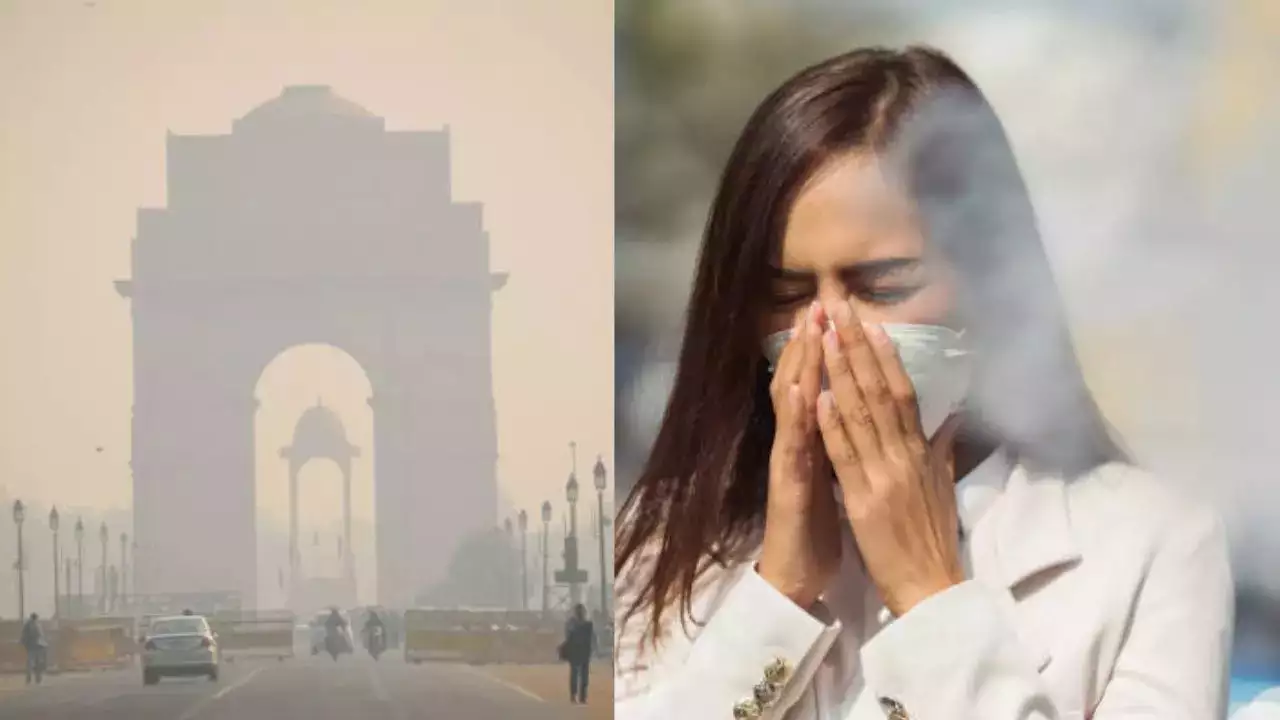
Beware! Delhi Air Pollution Can Trigger Eczema, Says Study; Here's How You Can Mitigate The Risk (Image Credits: iStock)
The national capital continues to grapple with a thick layer of smog, health issues are on the rise in Delhi. From breathing problems to skin allergies, people are suffering badly. The Air Quality Index (AQI) in Delhi-NCR has reached the 'severe' category for the first time this season today with the Air Quality Index (AQI) spiking over 400. A new research reveals that the autoimmune skin condition eczema, clinically known as atopic dermatitis, is more prevalent in areas with high levels of air pollution. Researchers from Yale University suggest that dirty air could be a significant trigger for the condition, especially as industrialisation has been linked to rising eczema rates.
“Showing that people who are exposed to particulate matter in air are more likely to have eczema deepens our understanding of the important health implications of ambient air pollution," explained Gloria Chen, lead investigator from Yale School of Medicine. The findings were published on Nov. 13 in the journal PLOS ONE.
Not only in India but eczema affects over 31 million Americans, according to the National Eczema Association. Symptoms include itchiness, dry skin, rashes, scaly patches, blisters, and skin infections. The root cause of eczema is believed to be an overactive immune system that reacts to environmental triggers. The study highlights air pollution as one of these triggers.
The Yale team analyzed data from nearly 287,000 Americans, of whom approximately 12,700 (4.4 per cent) had been diagnosed with eczema. They matched eczema rates with air pollution levels in zip codes across the United States, focusing on fine particulate matter—microscopic particles that can penetrate deep into the lungs.
The results showed that for every 10 micrograms of fine particulate matter per square meter of air, the risk of eczema doubled. This association remained significant even after accounting for other factors, such as smoking. While the study didn’t establish a direct cause-and-effect relationship, similar findings have been reported in countries like Australia, Germany, and Taiwan.
The researchers also noted that air pollution might worsen symptoms for individuals already living with eczema. Smoggy days could lead to acute flares or exacerbate the condition.
Tips to Protect Yourself from Toxic Air
For those living in areas with poor air quality or managing eczema, consider these precautions:
- Stay Indoors on High Pollution Days: Limit outdoor activities, especially during peak pollution hours, typically midday.
- Invest in Air Purifiers: Use HEPA filters indoors to reduce particulate matter in the air.
- Cover Exposed Skin: Wear protective clothing and face masks if you need to venture outdoors on smoggy days.
- Monitor Air Quality: Use apps or websites that provide real-time updates on air pollution levels in your area.
- Maintain a Skincare Routine: Keep your skin hydrated with eczema-friendly moisturizers and avoid harsh products.
- Avoid Triggers: Minimize exposure to known irritants such as smoking or industrial chemicals.
Get Latest News Live on Times Now along with Breaking News and Top Headlines from Health and around the world.

